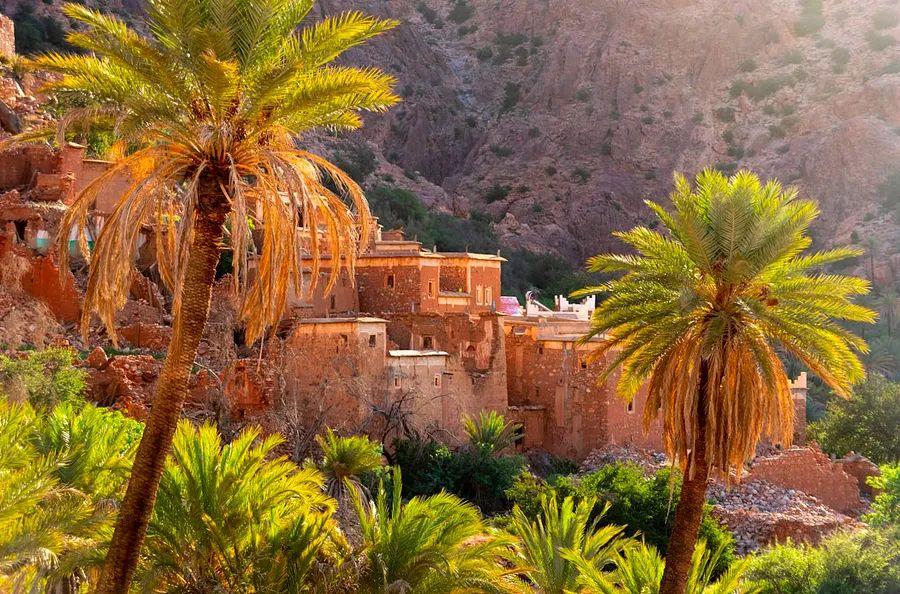18 key insights for your journey to Morocco

Having moved from the UK to Morocco in 2018, there are many things I wish I had known before diving into the chaotic realm of Moroccan taxis and haggling in the souqs.
Morocco showcases a vivid tapestry of life: the highs, the lows, the challenges, and the breathtaking beauty. For some, it can be a significant culture shock. However, with a bit of understanding and awareness, you can embrace these contrasts and experience the country from a fresh perspective without attempting to alter it.
1. Keep your travel plans flexible to accommodate changes
Explore the Moroccan destinations you're interested in, but be open to changes along the way, enjoying the spontaneity that Morocco offers. While booking tours and activities in advance is an option, reserving them upon arrival is often just as convenient.
2. Use public transport, especially in urban areas
Navigating cities like Casablanca and Marrakesh is best left to locals. Getting around Morocco is simple, even without a vehicle. An excellent train system connects many cities, including Africa’s first high-speed train, Al Boraq, which runs between Casablanca and Tangier. A dependable bus network also links towns of all sizes. It’s advisable to book train and bus tickets a day or two in advance to secure your preferred travel times.
 When learning to surf in Morocco, you can hire a certified instructor who speaks your language. Tim E White/Getty Images
When learning to surf in Morocco, you can hire a certified instructor who speaks your language. Tim E White/Getty Images3. Hire professional guides
To fully enjoy your trip to Morocco, consider hiring a guide who possesses deep knowledge and speaks your language. In cities, consult the local tourism office or your accommodation for recommendations on licensed guides. If you're interested in surfing, check out ISA’s directory of certified instructors.
Hiring a hiking guide is essential for climbing Mt. Toubkal in the High Atlas. Reach out to the Bureau des Guides for assistance.
4. Familiarize yourself with the road rules, both written and unwritten
In Morocco, driving occurs on the right side of the road, and wearing seatbelts is mandatory, even if some taxis lack them. Car horns are frequently used—not aggressively, but as a form of communication.
Be cautious of pedestrians, bicycles, motorcycles, and animals coming from all directions. Avoid driving at night, as some vehicles may not use their headlights. Pay attention to speed limits and roundabouts that have traffic lights. If stopped for speeding—common in police checks—it's preferable to have cash for fines, typically ranging from Dh150 to Dh300 (US$15 to US$30), rather than going to a local police station.
5. Cash or card?
The Moroccan dirham is a closed currency, meaning it can’t be used or obtained outside of Morocco. While rural areas still rely heavily on cash, credit and debit cards are widely accepted in towns and cities.
6. Pick up some local language skills
In Morocco, you’ll encounter a blend of French, Arabic, Amazigh, and English, varying by region. Don’t assume everyone speaks English. While apps like Google Translate can be handy, learning a few basic Arabic phrases will enhance your connection with the locals.
 Haggling is an integral part of the shopping experience in Morocco. Thomas Barwick/Getty Images
Haggling is an integral part of the shopping experience in Morocco. Thomas Barwick/Getty Images7. Master the art of bargaining
Haggling is a playful aspect of shopping in Morocco. Try to remain patient—the goal is for both parties to feel they’ve secured a fair deal.
For larger purchases, do your homework, have a target price in mind, or shop around until you find one. Sometimes vendors will say to pay what you feel, so if you're uncertain about a price, inquire about details: How many hours did it take to create? Where did the materials come from and how much did they cost?
The souqs are filled with imitation tennis shoes—just that: imitations. Many Moroccans aren’t concerned about whether their Nikes are authentic; they’re just looking for the best deal on the latest styles.
8. Honor the principle of 'God, king, and country'
These words are inscribed on hills across the nation. Islam is the official religion, and its tenets govern personal matters much like state laws in other countries. Speaking disrespectfully about religion or the king is illegal. Non-Muslims may only enter the Hassan II Mosque in Casablanca; other mosques and cemeteries are off-limits. Friday is considered a holy day, with many people taking a few hours off in the afternoon to attend prayers and enjoy couscous with their families afterward. Be sure to check business hours if you plan to visit specific places on a Friday.
The sacred month of Ramadan and the festivities of Eid provide a unique cultural experience, during which many establishments may be closed.
9. Essential tips for visiting Marrakesh
Marrakesh is the most visited city in Morocco, so it’s wise to book entrance tickets online for major attractions like Jardin Majorelle and Musée Yves Saint Laurent to avoid long lines. The Marrakesh medina comes alive around 5 pm, but the 'pink city' offers more than just the medina—take time to explore Gueliz and wander off the main boulevards into charming side streets filled with cozy cafes, bistro restaurants, and unique indie shops.
 Dress modestly when visiting religious sites and in rural areas. Grant Faint/Getty Images
Dress modestly when visiting religious sites and in rural areas. Grant Faint/Getty Images10. Dress code varies by location
When visiting the Hassan II Mosque and other religious sites, both men and women are required to cover their shoulders and knees. It's advisable to dress modestly in urban areas to avoid drawing unwanted attention. In bars and nightclubs, attire can be more relaxed, but in rural regions, it’s important to cover up and respect local customs.
At the beach, feel free to wear shorts, dresses, tank tops, and swimwear, including bikinis. Remember to bring comfortable shoes for uneven terrain and a scarf to cover your shoulders.
11. Always ask before photographing people
Regardless of where you are, it's courteous to ask for permission before snapping someone's picture. While many people are okay with it, some may not appreciate it and might request payment. Avoid taking photos of military or government buildings. Drones require special permission to operate in Morocco.
12. Learn to handle the hassle
Simply disregard individuals who offer goods you’re not interested in. There’s no need to engage politely with every seller. If you don’t react, they’ll usually lose interest and move on.
In certain areas, you might encounter comments or, in some cases, inappropriate behavior. Yelling 'Police!' can help deter these individuals. In Marrakesh, this could also alert undercover tourist police.
 While you can find alcohol in some restaurants in Morocco, mint tea is the more traditional choice. Thomas Barwick/Getty Images
While you can find alcohol in some restaurants in Morocco, mint tea is the more traditional choice. Thomas Barwick/Getty Images13. Is it permissible to drink alcohol in Morocco?
Although Islamic law prohibits alcohol, it is widely accessible in licensed wine shops and international supermarkets. Not every bar and restaurant offers alcoholic beverages.
14. Use your right hand for eating
In Morocco, traditional dishes like tagines and grilled fish are eaten with bread using your right hand. The left hand is deemed unclean as it is typically used for personal hygiene.
15. Embrace getting lost
Getting lost can be a delightful part of exploring Morocco, with its unmarked roads, winding souq alleys, and areas lacking cell phone service. Stay relaxed, remain aware of your surroundings, and don’t hesitate to ask for directions if needed.
In the medinas, remember that if a street sign is hexagonal, it indicates a dead end, while a square sign signifies a through street.
16. Avoid drinking tap water
Morocco's tap water is not safe for drinking. Carry a water bottle with a filter to reduce plastic waste.
17. Carry tissues for public restrooms
Many public toilets lack toilet paper. If you're not comfortable using water for personal hygiene, it's wise to keep a pack of tissues and some antibacterial hand gel or wipes handy.
18. Street cats and dogs are a common sight and part of the local community
It's best not to feed street animals from your table, as they may linger, but you can save leftovers to feed them elsewhere. If you're an animal lover, check if there's a rescue center nearby and consider supporting it through donations or volunteering your time.

1

2

3

4

5
Evaluation :
5/5